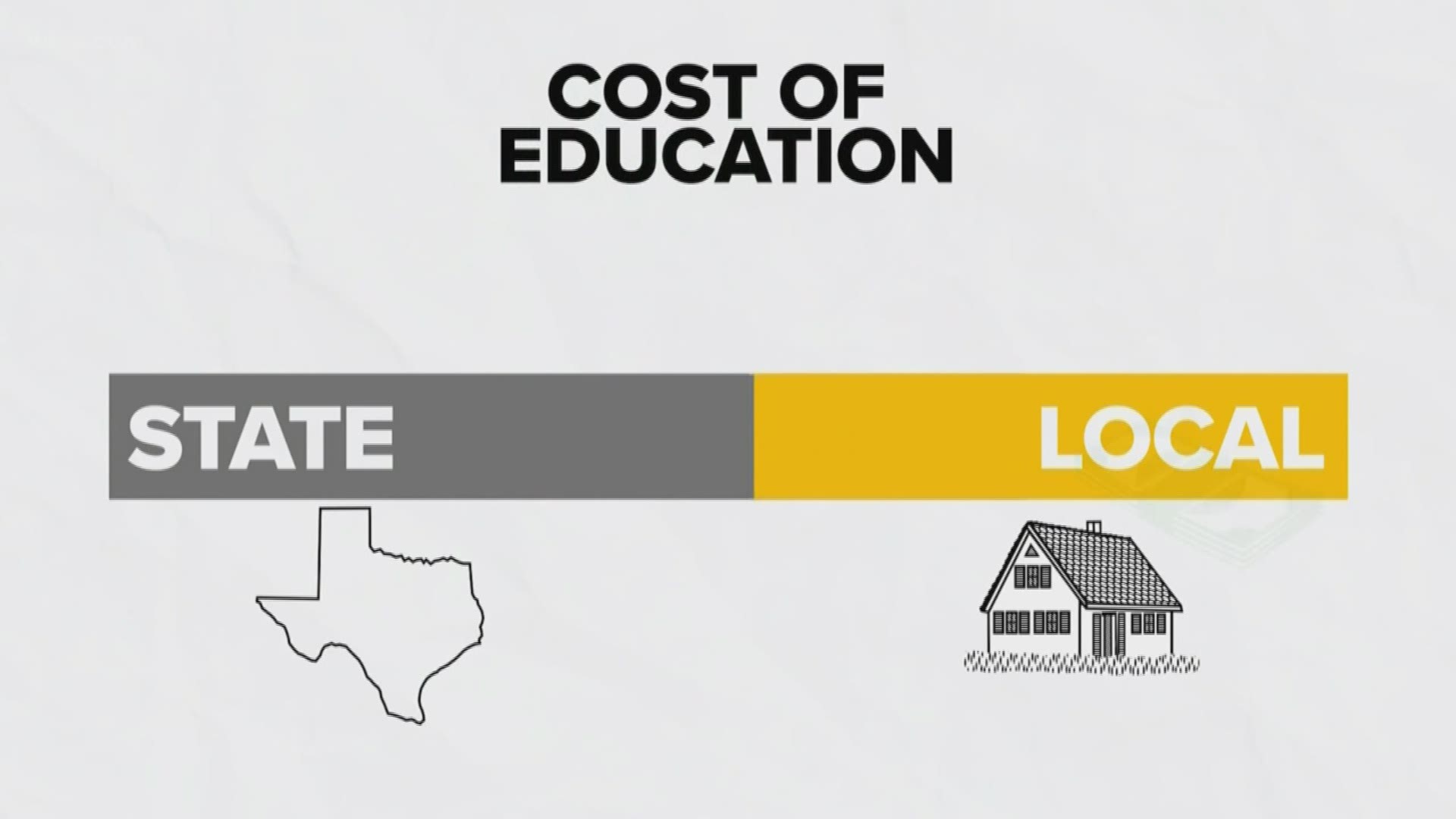AUSTIN, Texas — Editor's note: The video published above was a VERIFY report from 2019 about Texas' "Robin Hood" system.
A Texas lawmaker has filed a bill aimed at repealing the state's longstanding recapture system – commonly dubbed by some as "Robin Hood" – which was implemented in 1994.
Texas' recapture system required the state to remove local property tax dollars from districts with the highest levels of property wealth per student in an effort to provide more equal per-student funding across the state. In 1994, the State removed $127 million from 34 school districts in order to equalize funding for public education.
Recapture has since grown to roughly 160 districts paying upwards of $3 billion.
In the latest financial report from the Texas Education Agency (TEA) for the 2020-21 school year, Austin ISD was the highest-charged district in Texas at $761.3 million, a 320% increase from its $181.1 million price tag in 2015 and more than $500 million more than the second-most: Houston ISD at just over $197 million. Plano ISD came in third with just over $191 million.
State Rep. Matt Shaheen (R-TX), who represents Collin County in District 66, announced Tuesday he had filed House Bill 620, which aims to "repeal Section 12.013(b) of the Texas Education Code and allow school districts to keep more property tax dollars collected to support and operate the schools in their community."
According to a report from Texas School Coalition, it recaptured an additional $1.4 billion that it did not allocate to schools and did not return to taxpayers.
There has already been legislation passed to alleviate the property tax revenue punch to taxpayers. In 2019, lawmakers passed House Bill 3 (HB 3), which restructured how recapture is calculated. According to the Texas Education Agency (TEA) website, HB 3 reduces recapture in three primary ways:
- The calculation of recapture is now based on local revenue in excess of entitlement instead of equalized wealth levels
- CEI: Disparities between recapture and non-recapture districts caused by the CEI have been eliminated
- Transportation: Costs for transportation are now funded equally between recapture and non-recapture districts
- Entitlement prevails over recapture: Districts are now guaranteed that recapture will not reduce revenue below their entitlement level (TEC, Section 48.257, HB 3 Enrolled Page 92)
- Total entitlement increased – note the BA increase as well
- New allotments were created (Early Education Allotment, CCMR Bonus, Teacher Incentive Allotment, etc.)
- Existing allotments were expanded (State Compensatory Education, special education, bilingual/dual language)
- Lowered property tax rates
- HB 3 lowered tax rates, resulting in fewer collections
- HB 3 contains a mechanism to lower future property tax rates
For more information about HB 3, click here. To read the full recapture report from the Texas School Coalition, click here.
Rep. Shaheen is notably a resident of Plano and is among the taxpayers affected by Plano ISD's recapture costs.
"Plano ISD taxpayers have paid $1.67 billion collectively into Robin Hood with no amount of that money being spent on schools located in Plano ISD," Shaeen said in a press release announcing HB 620's filing. "It is a blatant exploitation of these taxpayers, myself included, and I will continue to fight to repeal Robin Hood."
Here are the past five reported years of Plano ISD's recapture costs, according to TEA records:
- 2020-21: $192 million
- 2019-20: $166 million
- 2018-19: $211 million
- 2017-18: $157 million
- 2016-17: $105 million
Dallas ISD is also among the top charged districts for recapture, paying the ninth-most money in the state in 2020-21 ($85 million), according to the 2022 Texas School Coalition report.
The finance reports for 2021-22 and 2022-23 will be available in spring 2023 and spring 2024, respectively, according to the TEA website.
More Texas headlines:

